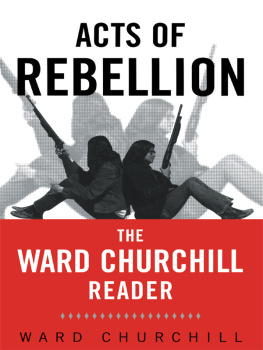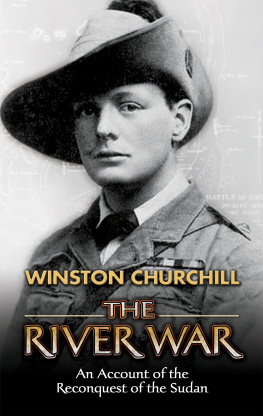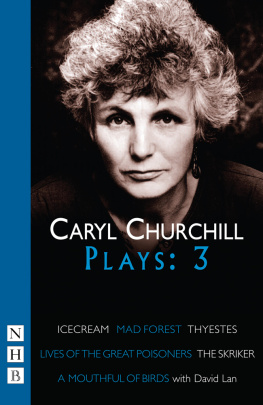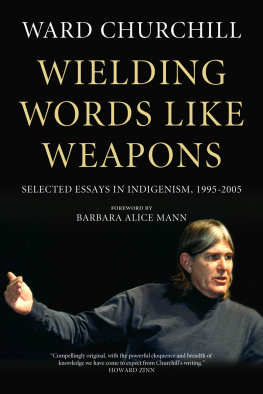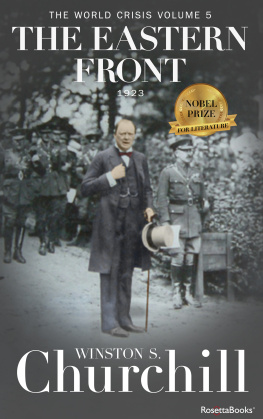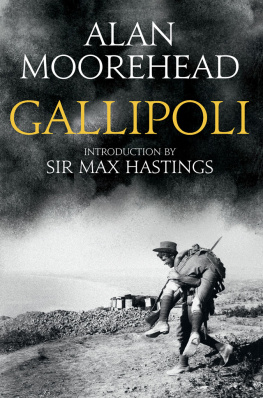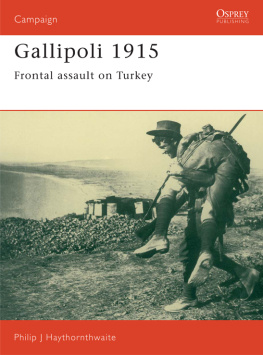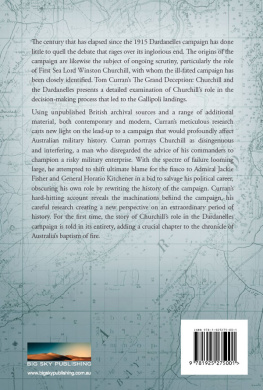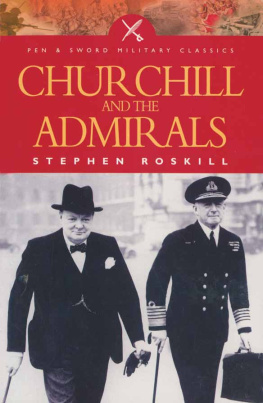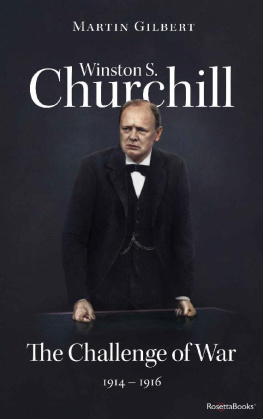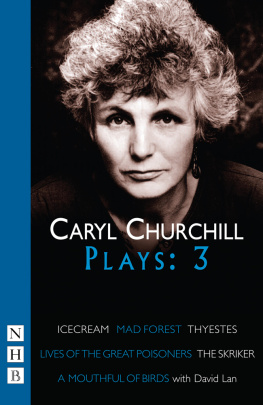Churchill - The World Crisis Vol 2: 1915
Here you can read online Churchill - The World Crisis Vol 2: 1915 full text of the book (entire story) in english for free. Download pdf and epub, get meaning, cover and reviews about this ebook. year: 2013, publisher: RosettaBooks, genre: History. Description of the work, (preface) as well as reviews are available. Best literature library LitArk.com created for fans of good reading and offers a wide selection of genres:
Romance novel
Science fiction
Adventure
Detective
Science
History
Home and family
Prose
Art
Politics
Computer
Non-fiction
Religion
Business
Children
Humor
Choose a favorite category and find really read worthwhile books. Enjoy immersion in the world of imagination, feel the emotions of the characters or learn something new for yourself, make an fascinating discovery.
The World Crisis Vol 2: 1915: summary, description and annotation
We offer to read an annotation, description, summary or preface (depends on what the author of the book "The World Crisis Vol 2: 1915" wrote himself). If you haven't found the necessary information about the book — write in the comments, we will try to find it.
The World Crisis Vol 2: 1915 — read online for free the complete book (whole text) full work
Below is the text of the book, divided by pages. System saving the place of the last page read, allows you to conveniently read the book "The World Crisis Vol 2: 1915" online for free, without having to search again every time where you left off. Put a bookmark, and you can go to the page where you finished reading at any time.
Font size:
Interval:
Bookmark:
The World Crisis
Part II
1915
Winston S. Churchill
Copyright
The World Crisis
Part II 1915
First published 192331. Estate of Winston S. Churchill
Cover art to the electronic edition copyright 2013 by RosettaBooks, LLC.
All rights reserved. No part of this book may be used or reproduced in any form or by any electronic or mechanical means, including information storage and retrieval systems, without permission in writing from the publisher, except by a reviewer who may quote brief passages in a review.
Image of Winston Churchill with the Grenadiers in France, 1916 reproduced by permission of Curtis Brown, London, on behalf of The Broadwater Collection, an archive of photographs owned by the Churchill family and held at the Churchill Archives Centre, Cambridge.
Electronic edition published 2013 by RosettaBooks, LLC, New York.
Cover art by Alexia Garaventa
ISBN Mobipocket edition: 9780795331459
To
All Who Tried
Appendix
THE DEADLOCK IN THE WEST
The Year 1915Its Lost OpportunitiesThe Chain of Commanding CausationThe Continuous FrontFrontal AttacksThe War of ExhaustionSlaughter or ManuvreNo Clearing House of IdeasThe Mechanical DeadlockMonitors and TanksSmokeThe Eastern FrontThe Opening BattlesThe Winter CampaignFailure of the Russian MunitionsImpending DisastersThe Last Resource of RussiaAmphibious SolutionsThe Northern FlankThe Southern FlankThe Flexibility of Sea PowerThe Great Amphibian.
The year 1915 was fated to be disastrous to the cause of the Allies and to the whole world. By the mistakes of this year the opportunity was lost of confining the conflagration within limits which though enormous were not uncontrolled. Thereafter the fire roared on till it burnt itself out. Thereafter events passed very largely outside the scope of conscious choice. Governments and individuals conformed to the rhythm of the tragedy, and swayed and staggered forward in helpless violence, slaughtering and squandering on ever-increasing scales, till injuries were wrought to the structure of human society which a century will not efface, and which may conceivably prove fatal to the present civilization. But in January, 1915, the terrific affair was still not unmanageable. It could have been grasped in human hands and brought to rest in righteous and fruitful victory before the world was exhausted, before the nations were broken, before the empires were shattered to pieces, before Europe was ruined.
It was not to be. Mankind was not to escape so easily from the catastrophe in which it had involved itself. Pride was everywhere to be humbled, and nowhere to receive its satisfaction. No splendid harmony was to crown the wonderful achievements. No prize was to reward the sacrifices of the combatants. Victory was to be bought so dear as to be almost indistinguishable from defeat. It was not to give even security to the victors. There never was to be The silence following great words of Peace. To the convulsions of the struggle must succeed the impotent turmoil of the aftermath. Noble hopes, high comradeship and glorious daring were in every nation to lead only to disappointment, disillusion and prostration. The sufferings and impoverishment of peoples might arrest their warfare, the collapse of the defeated might still the cannonade, but their hatreds continue unappeased and their quarrels are still unsettled. The most complete victory ever gained in arms has failed to solve the European problem or remove the dangers which produced the war.
Although this account pretends to deal only with a partial aspect of the immense theme, it will follow throughout, as I conceive, the pathway on which footsteps were decisive. In the vast tangle of arguments, here will be found the unravelling thread. In the clash, overbalancing or equipoise of gigantic forces, here were the determining factors. Amid increasing chaos, here lay the potential dominants. Much action and the play of forces even on a huge scale and with enormous material effects is often irrelevant, and counts for little or nothing in the final result: but along the chain of commanding causation even the smallest events are vital. It is these which should be studied and pondered over; for in them is revealed the profound significance of human choice and the sublime responsibility of men. No one can tell that he may not some day set a stone rolling or take or neglect some ordinary step which in its consequences will alter the history of the world.
When the old year closed a complete deadlock existed between the great combatants in the West by land and by sea. The German fleet remained sheltered in its fortified harbours, and the British Admiralty had discovered no way of drawing it out. The trench lines ran continuously from the Alps to the sea, and there was no possibility of manuvre. The Admirals pinned their faith to the blockade; the Generals turned to a war of exhaustion and to still more dire attempts to pierce the enemys front. All the wars of the world could show nothing to compare with the continuous front which had now been established. Ramparts more than 350 miles long, ceaselessly guarded by millions of men, sustained by thousands of cannon, stretched from the Swiss frontier to the North Sea. The Germans had tried in October and November to break through while these lines were still weak and thin. They had failed with heavy losses. The French and British Headquarters had still to be instructed in the defensive power of barbed wire and entrenched machine guns.
For more than forty years frontal attacks had been abandoned on account of the severity of modern fire. In the Franco-German War the great German victories had been won by wide turning movements executed on one flank or the other by considerable forces. In the Russo-Japanese War this method was invariably pursued by the victors. Thus at Liao-yang it was General Kurokis army which turned the Russian left; and at Mukden General Nogis army brought specially from Port Arthur turned the Russian right. It was certain that frontal attacks unaccompanied by turning movements on the flank would be extremely costly and would probably fail. But now, in France and Flanders for the first time in recorded experience there were no flanks to turn. The turning movement, the oldest manuvre in war, became impossible. Neutral territory or salt water barred all further extension of the Front, and the great armies lay glaring at each other at close quarters without any true idea of what to do next.
It was in these circumstances that the French High Command, carrying with them the British, turned again to the forlorn expedient of the frontal attack which had been discarded in the bitter experiences of the past. Meanwhile, the power of modern weapons had doubled and trebled since the Russo-Japanese War, and was increasing almost daily. Moreover, the use of barbed wire and the consequent need of prolonged bombardment to destroy it, effectually prevented any chance of surprise. There existed at this period no means of taking the offensive successfully in France: the centre could not be pierced, and there were no flanks to turn. Confronted with this deadlock, military art remained dumb; the Commanders and their General Staffs had no plan except the frontal attacks which all their experience and training had led them to reject; they had no policy except the policy of exhaustion.
No war is so sanguinary as the war of exhaustion. No plan could be more unpromising than the plan of frontal attack. Yet on these two brutal expedients the military authorities of France and Britain consumed, during three successive years, the flower of their national manhood. Moreover, the dull carnage of the policy of exhaustion did not even apply equally to the combatants. The Anglo-French offensives of 1915, 1916 and 1917 were in nearly every instance, and certainly in the aggregate, far more costly to the attack than to the German defence. It was not even a case of exchanging a life for a life. Two, and even three, British or French lives were repeatedly paid for the killing of one enemy, and grim calculations were made to prove that in the end the Allies would still have a balance of a few millions to spare. It will appear not only horrible but incredible to future generations that such doctrines should have been imposed by the military profession upon the ardent and heroic populations who yielded themselves to their orders.
Next pageFont size:
Interval:
Bookmark:
Similar books «The World Crisis Vol 2: 1915»
Look at similar books to The World Crisis Vol 2: 1915. We have selected literature similar in name and meaning in the hope of providing readers with more options to find new, interesting, not yet read works.
Discussion, reviews of the book The World Crisis Vol 2: 1915 and just readers' own opinions. Leave your comments, write what you think about the work, its meaning or the main characters. Specify what exactly you liked and what you didn't like, and why you think so.


